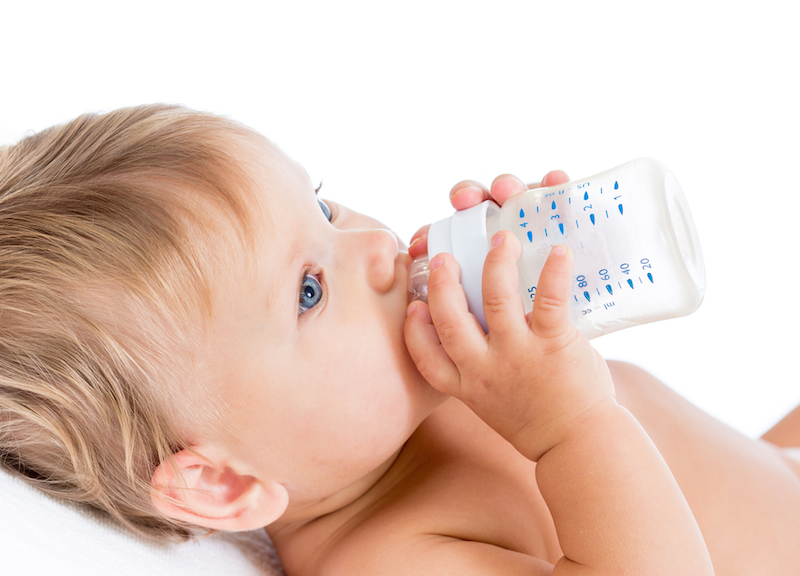How Babies' Gut Bacteria May Help Find Treatments for C. Diff

Get the world’s most fascinating discoveries delivered straight to your inbox.
You are now subscribed
Your newsletter sign-up was successful
Want to add more newsletters?

Delivered Daily
Daily Newsletter
Sign up for the latest discoveries, groundbreaking research and fascinating breakthroughs that impact you and the wider world direct to your inbox.

Once a week
Life's Little Mysteries
Feed your curiosity with an exclusive mystery every week, solved with science and delivered direct to your inbox before it's seen anywhere else.

Once a week
How It Works
Sign up to our free science & technology newsletter for your weekly fix of fascinating articles, quick quizzes, amazing images, and more

Delivered daily
Space.com Newsletter
Breaking space news, the latest updates on rocket launches, skywatching events and more!

Once a month
Watch This Space
Sign up to our monthly entertainment newsletter to keep up with all our coverage of the latest sci-fi and space movies, tv shows, games and books.

Once a week
Night Sky This Week
Discover this week's must-see night sky events, moon phases, and stunning astrophotos. Sign up for our skywatching newsletter and explore the universe with us!
Join the club
Get full access to premium articles, exclusive features and a growing list of member rewards.
Some infants carry the diarrhea-causing bacteria Clostridium difficile in their guts without any symptoms, but the bacteria may rapidly disappear when these infants switch from drinking breast milk to cow's milk, a new study suggests.
The study included only one infant, and it isn’t clear whether the same thing always happens in other babies. But if the findings hold true in other studies, a better understanding of exactly how C. difficile suddenly disappears from the gut of young children could potentially lead to new treatments for the illness in adults, the researchers said.
Compared to adults, "There are [bacteria] strains that are lacking," in the infant gut early on that become more abundant when infants switch to cow's milk, said study co-author Manli Davis, a researcher at Techlab, a company that develops diagnostic tests for gut diseases.
Although it isn't clear why C. diff disappears just as these other bacteria come on the scene, it could be that these other bacteria fight against C. diff, and so they might be candidates for a probiotic treatment for people with C. diff, Davis said. [Probiotics' Future: 3 Promising Research Areas]
In adults, C. difficile can cause severe illness, and even death, but up to half of infants who carry the bacteria don't show any symptoms. Some researchers think that infants lack a receptor in their cells for the C. difficile toxin, meaning that the toxin is not able to bind to cells and cause illness.
C. difficile in infants usually disappears over time, but exactly when this happens was not clear.
In the new study, the researchers regularly tested one infant for C. difficile bacteria, starting when the baby was 6 months old, until she was 17 months old. The researchers wondered if they could catch the point in time when C. diff disappeared, Davis said.
Get the world’s most fascinating discoveries delivered straight to your inbox.
Initially, the C. diff bacteria were producing very high levels of toxins, but the baby did not have any symptoms. "It was similar to the toxin level that could cause serve severe disease in adults, but she was totally healthy," Davis said.
The baby's level of C. diff fluctuated over time, but three days after she was switched to cow's milk, the C. diff quickly disappeared. At that point, the gut bacteria underwent a dramatic change, shifting from the types of bacteria that are commonly seen in babies — such as Lactobacillus and Bifidobacterium — to the types of bacteria that are commonly seen in adults, including Bacteroides.
The bacteria seen in adults may inhibit the growth of C. diff, Davis said, but figuring out exactly which bacteria are protective could be difficult.
Because the new study involved only one infant, more research is needed to confirm the results. Davis and colleagues may conduct more studies on the "adult" bacteria that took over when the infant switched to cow's milk, to see if they have potential as probiotics, Davis said.
Researchers have yet to find a potent probiotic that works to treat adults with C. diff infections, and probiotics are currently not recommended for treatment.
The change in gut bacteria that happens when infants switch to cow's milk appears to be a natural process, but the implications for infants' health is not clear at this time, Davis said. The new study was not intended to compare breast milk versus cow's milk, but rather, to study the natural change in gut bacteria over time, including at the point of weaning.
Davis presented the findings this month at IDWeek, a meeting of several organizations focused on infectious diseases.
Follow Rachael Rettner @RachaelRettner. Follow Live Science @livescience, Facebook & Google+. Original article on Live Science.

Rachael is a Live Science contributor, and was a former channel editor and senior writer for Live Science between 2010 and 2022. She has a master's degree in journalism from New York University's Science, Health and Environmental Reporting Program. She also holds a B.S. in molecular biology and an M.S. in biology from the University of California, San Diego. Her work has appeared in Scienceline, The Washington Post and Scientific American.
 Live Science Plus
Live Science Plus










